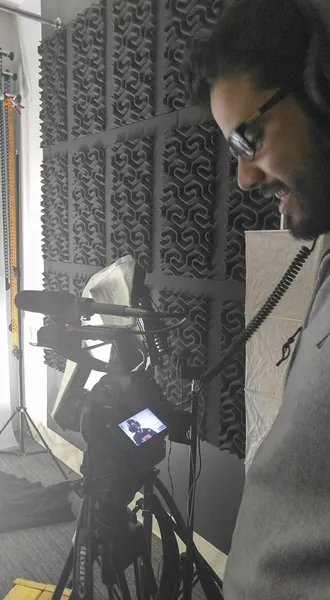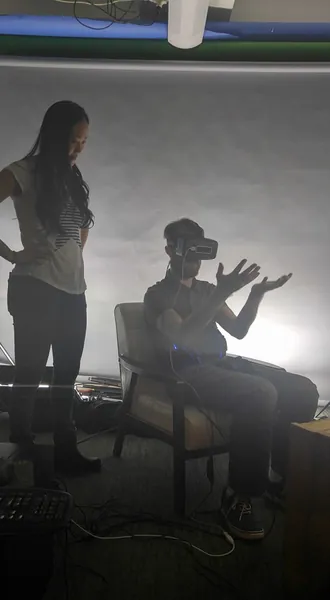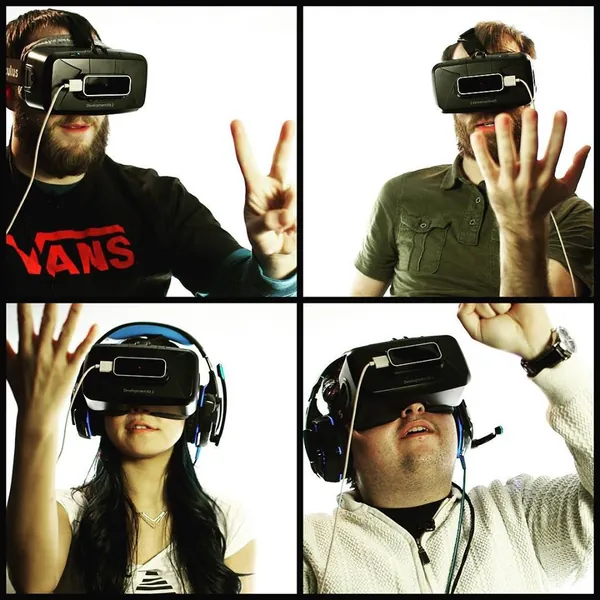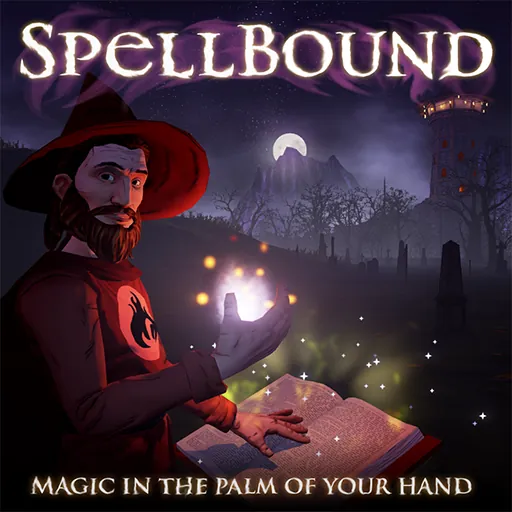Alpha game play footage of Spellbound:
[media]
Production: We're slowly changing gears from a production focus to a test, polish and promote focus. The framework and the gameplay loop for our game has pretty much been completed. I just have to finish creating the skeleton war leader, write his AI, sync his animations, and then update and test all of the spells the player will use.
I've transitioned into fleshing out the narrative details for the game as well.
"Wait, you mean you were building a game without knowing the exact narrative??"
Yes, sort of. I wrote a rough draft of the narrative story with dialogue. It was complete, but not the finished product. It gave us enough of a narrative framework to know the major parts of the story and how they work with each other. Now, I am going through and rewriting the complete narrative from scratch and doing a much better job. This narrative portion is still going to be a "rough draft" version because I don't know exactly how it will mesh with the game once we put it in. I'm going to do some place holder voice over work on the characters and see how long the narrative sequences last and how well they work in the context of the game. The questions I'm interested in are, "Does this narrative sequence make sense in the context its in? Is it too long or too short? How does the tone fit with the game atmosphere? How does the delivery feel? How does this feel within VR, overall? Does it still work, or are there immersion breaking elements I didn't know about? What kinds of things can I do with the narrative to enhance the feelings of immersion?"
Bottom line: We'll be wrapping up production in a few weeks and moving into a "test the hell out of this game!" phase, where we try to break it from every angle and also test for "overall fun factor", and for proper immersion and try to identify sources of motion sickness (not something many other games have to test for!!).
Game Release Plan: I'm going to do the best I can to release my game as close to the VR hardware launches as reasonably possible. I know that release dates and developer promises are really slippery though. But, I can see the light at the end of the tunnel. The plan is really dependent on the support and resources I have access to. If I get absolutely no financial support whatsoever, then I have to release by late March or we die. If we get support in the form of a sponsorship, then we get some breathing room to really polish this game up and make it the best VR experience we can deliver. I think, based on our game play, we might have a chance to attract attention.
In the spirit of promotion, marketing and attention, we got our very first press article by VRFocus. I feel like... we're actually somebody now. Not quite nobodies, but still very easy to overlook or ignore. Heh, I catch myself sometimes wondering "Am I really in the game industry as a legit game developer, or am I just somebody who invented his position and says he's in the industry but actually isn't?". To explain, a part of me feels that for me to be 'legit', I have to release a game which people buy and I haven't done that yet. But I'm almost there, aren't I?
My press release approach was a bit sloppy: In mid January, I shot about 11 minutes of gameplay video and posted it on Youtube (see above). I then reached out to two different press outlets which exclusively cover the VR industry, and sent them a link to my video with a short write up of our project. My intent was to sort of just say, "Hey, I think we are making something cool and I just want to be on your radar. I hope you're interested!" To my surprise, they both wrote up flattering articles about my game and its progress.
"Alpha Gameplay Video Released for Spellbound on Oculus Rift" VRFocus, 15 Jan 2016
"'Spellbound' Lets You Cast Virtual Magic with your Real Hands", RoadToVR, 17 Jan 2016
A few days later, there are about 20 articles online about my game (in chinese, russian, spanish, etc). Details are a bit scarce in most of them, but that's almost certainly my fault. I think I may have jumped the gun slightly. What I *should* have done is created a facebook page, a polished website for the game, a way for people to follow us (newsletter?), etc. Then, I should have left the last 10-15 seconds of the video with links to those pages so that I can cross promote my social media outlets. People should be able to engage with our team and ask us questions! I should have also spent a lot more time and effort generating some high resolution screenshots of the game play and created some press ready art assets which they can use. It's also interesting and scary to watch pages and information about our game pop up without my involvement. My underlying worry is, "what are people saying? Is the information accurate?". For example, I've always planned to support the HTC Vive headset, but because I didn't explicitly state that to the press, it's implied that it's only coming out for the Oculus Rift. Now people are griping about how they hate 'exclusives'. Whoops, my mistake. It's not an hardware exclusive! Lesson learned: It's a lot harder to correct the message after it's put out into the wild.
But all of that is okay, it was the very first time I've been able to make any sort of public press release which has had any sort of traction. I've learned a lot and I will do much better next time, which is in early February. We work out of a shared work space which is predominately people in the film industry. I commissioned one of these guys to shoot and produce our game trailer for our steam green light page. When that goes live, I'll send out another message to the press outlets and I'll do it right by including LOTS of details, and LOTS of art assets and high resolution screenshots. This time, I'll do a much better job with promotion. The ideal is to have a lot of public awareness of this upcoming game so that when we finally finish it and release it, we have an existing pool of interested people. The nightmare scenario is to spend a year building this game and only make 10 sales because we failed to promote it and because it's just not a game anyone wants to play.
There was a bit of criticism from some people about the game (particularly the running animations). The first knee jerk reaction is to feel put off by it, but... that's the wrong attitude to take. The better approach is to look at what people are saying, see it as constructive criticism -- a blessing in disguise -- and use it as an indicator for what needs more work. It's a lot better to have an unknown problem brought to our attention early so that we can fix it before releasing, than to release and get slammed for it. Anyways, it's important to really listen to what people are trying to tell you. If anything, I want more feedback, good or bad.
I reached out to Leap Motion via twitter and sent them a link to our youtube video, and they replied,
"[color=#292f33][font=Arial]When you get this to a beta, please let us know. We would love to play it, but also support however we can."[/font][/color]
A part of me wants to squeal because I just love what they're doing for VR, and to get any recognition from a company I regard highly is a huge compliment. On top of that, they want to help and support me. That might be a card I play in order to get them to do another iterative pass on the hardware performance and tracking for UE4. If they could do that, that would *really* help our gamers have a less frustrating experience.
Today (23 Jan) I had a bit of a surprise and laugh as I opened up my inbox. Leap Motion had sent out newsletter update with a link to their blog. Usually I don't open up spammy messages, but this time I did... and I saw game play footage from my game, front and center! What!? That's amazing!! What an honor to be featured like that! And it actually looks good, like something I really want to know more about. There was also some footage of games which are similar in concept to our game. Great exposure for all of us!
Our Competition: In the friendliest usage of the term, these are our competitors. To my limited knowledge, we are the three teams in the world working on a magic spell casting VR game using hands as input.
Warlock VR: A game jam entry which continued development after the jam. They seem to be focusing more on the multiplayer aspects of spell casting with your hands, and the game play reminds me a lot of Quake 3. Quake 3 is a fantastic game, probably one of my all time favorite games. But... it's also a really fast paced game! I wonder how suitable that is for VR? I'm always interested to see how other VR developers do the avatar for the player controlled characters as well. It seems that just about everyone is using floating hands instead of full bodied characters. I think full bodied avatars are the best way to go -- you gotta be able to look down and see the rest of your body in VR! They also have the same locomotion problems my game has. They appear to have chosen to use a combination of stationary movements, teleporting, superman flight, and game controllers. Interesting... I hope they do well!
Runes: The forgotten path: These guys are probably our biggest competition. I really like what they're doing. It's very similar to what we're working on, but they were lucky enough to get the HTC Vive and hand controllers, so they have a head start on us. They also have seven people on their team! They also feature... 100+ spells?! wow, geez! Our game just comes with 6 which I'm trying to just get right and get it to 'feel' like polished magic. Their website looks great and they have done all of their social media nicely. I think I have a lot of work to do in order to catch up to them. My intuition is to say, "Don't copy them, just do things they aren't doing, be the first, and do it better than everyone who will eventually try. Do this, and you have nothing to worry about."
Meetups:
Last week I went to another VR meetup here in Seattle. My intention was to feature a build of my game there, but I didn't want to bring my dev workstation. I'm getting kind of tired of tearing it down and putting it back together every time I want to show my game. So, I was just going to bring a build of my game and the Oculus, and borrow a computer. This was as much of a test of my build and deployment process as it was a way to feature my game. I discovered there were a few wrinkles to iron out in my build (causing me to be 20 minutes late), but I got it running nicely. However, once I arrived at the meetup, I discovered that the machine they gave me couldn't actually use my Oculus. It's the weirdest thing. The graphics card on the machine they provided is an ATI with a mini display port, but no HDMI ports (which the oculus needs). We found an adapter, plugged it in, and the HMD got video. But, when it came time to switching to stereo VR mode for my game, it wouldn't work. The computer was treating the oculus like another display monitor and the oculus config software was complaining that the hardware wasn't plugged into an HDMI port. So, no VR mode for my game at the VR meetup. Only two people played it and that was with a traditional monitor, mouse and keyboard. What a disappointment. Lesson learned: Don't rely on unknown hardware configurations if you have an important demo to show. Ideally, test it first, hours in advance, so you have time to troubleshoot and replace stuff if something goes wrong. Again, all my fault.
I spent most of the meetup trying to get my game to work, so that was doubly disappointing. I did get to chat with Mike Lenzi for a few minutes, who is the CEO of Atomic VR. Their team works with the HTC Vive and have released a short VR demo called "Fruit Ninja" (or something like that), where you use a ninja sword to slice flying fruit and avoid slicing bombs. They did a really good job and I look forward to seeing what they come up with in the future. Anyways, we talked briefly and he mentioned that Chet, the top VR guy from Valve, had stopped by for 20 minutes and left. He was on his way home from the airport. Dang, I missed it. Mike said that he could make an introduction for me via email and he did. As you might imagine, Chet is a super busy guy with the lead up to the release of SteamVR. He said that they're currently crunching to get ready for the VR showcase coming up next week and some other events, but he'd love to see our game and would have some time in early February. I'm really excited. I hope we can make a trip across the lake to their office and show them our game. In the mean time, that means we definitely have to work really hard to make sure that the game experience is as bug free and polished as possible. We need to show people that we're working on something really cool and it's worth getting excited about. And, if I get people excited about what we're working on, I also want to make sure that we don't disappoint anyone by over promising and under delivering.
Gameplay Trailer Video Shoot:
The co working space I'm working out of is full of people in the local film industry. We're all sort of in the story telling business. Ruben is a producer who has been very interested in helping us, so I've commissioned him to shoot the gameplay trailer for Spellbound. We began shooting in our studio last week.
[table][tr][td] [/td][td]
[/td][td] [/td][/tr][/table]
[/td][/tr][/table]
The plan is to bring in a bunch of people we know and have them play through our game, record their hands and faces, and show the corresponding game play. If you create a fist in real life, we want to show how that corresponds to creating a fist in the game, and how that creates a magical spell in your hand. We also want to record the emotional reactions people get at certain points in the game -- particularly when they're being hunted by zombies. The overall goal is to show what the game play looks like, show people really enjoying the game, and getting people curious enough to want to try the game for themselves.

This is our first try at making a game play trailer, so I'm sure we're going to screw up a lot of things in the process and learn a lot of lessons. One thing I know though... a lot of the existing game play trailers bore the hell out of me. If you have to make me read text of any sort to understand your game, you're losing my interest. No, no, no. Just don't do it. Show, don't tell. But what do I know? I haven't made a game or a trailer yet.
Thanks for reading! I anticipate next months entry will be really exciting ![]() . We've come a long way from where we began two years ago (has it already been two years?!).
. We've come a long way from where we began two years ago (has it already been two years?!).







